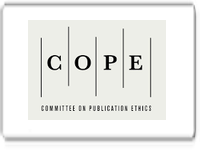Trasplante de microbiota fecal y suplementación de vitamina D en el síndrome de intestino irritable.
DOI:
https://doi.org/10.56048/MQR20225.7.3.2023.478-489Palabras clave:
Síndrome del Intestino Irritable, Trasplante de Microbiota Fecal, Vitamina DResumen
Introducción: El síndrome de intestino irritable (SII) representa una condición crónica que impacta el sistema gastrointestinal, cuyas características incluyen síntomas como dolor abdominal, meteorismo, fluctuaciones en la periodicidad y morfología de las deposiciones, así como una disminución en la calidad de vida del paciente. La teoría actual sostiene que existe un vínculo entre la disbiosis de la flora intestinal y la hipovitaminosis D en la etiología del SII. El trasplante de microbiota fecal (TMF) y el suplemento de vitamina D han surgido como posibles estrategias terapéuticas para el manejo de esta enfermedad. La finalidad de esta revisión bibliográfica fue evaluar la literatura científica sobre la efectividad del TMF y la suplementación de vitamina D en el tratamiento del SII. Metodología: Se efectuó una rigurosa exploración en repositorios electrónicos de información médica, tales como PubMed y Scopus. Se seleccionaron estudios clínicos y revisiones sistemáticas que evaluaran los efectos del TMF y la suplementación de vitamina D en individuos con SII. Resultados: La revisión de la literatura sugirió que tanto el TMF como la suplementación de vitamina D tenían efectos beneficiosos en el manejo del SII. Los estudios demostraron mejoras en los síntomas gastrointestinales, la calidad de vida y la estructura de la flora intestinal después de la intervención. Conclusiones: El TMF y la suplementación de vitamina D parecieron ser estrategias prometedoras para el manejo clínico del SII. Sin embargo, es necesario destacar que se requieren más investigaciones controladas y de mayor tamaño para establecer pautas claras para la implementación clínica de estas intervenciones.
Descargas
Métricas
Cited
DOI: 10.56048![]()
Citas
Abbasnezhad, A., Amani, R., Hajiani, E., Alavinejad, P., Cheraghian, B., & Ghadiri, A. (2019). Effect of vitamin D on gastrointestinal symptoms and health-related quality of life in irritable bowel syndrome patients: a randomized double-blind clinical trial. Neurogastroenterology and motility, 31(10), e13679.
Abdelghafar, Y. A., AbdelQadir, Y. H., Motawea, K. R., Nasr, S. A., Omran, H. A. M., & Belal, M. M. (2022). Efficacy and safety of fecal microbiota transplant in irritable bowel syndrome: An update based on meta-analysis of randomized control trials. Health Science Reports, 5(5).
Canakis, A., Haroon, M., & Weber, H. C. (2020). Irritable bowel syndrome and gut microbiota. Current Opinion in Endocrinology, Diabetes and Obesity, 27, 28–35.
El Amrousy, D., Hassan, S., El Ashry, H., Yousef, M., & Hodeib, H. (2018). Vitamin D supplementation in adolescents with irritable bowel syndrome: Is it useful? A randomized controlled trial. Saudi Journal of Gastroenterology, 24(2), 109–14. https://doi.org/10.4103/sjg.SJG_536_17
El-Salhy, M., Hatlebakk, J. G., Gilja, O. H., Kristoffersen, A. B., & Hausken, T. (2020). Efficacy of faecal microbiota transplantation for patients with irritable bowel syndrome in a randomised, double-blind, placebo-controlled study. Gut, 69(5), 859–67. https://doi.org/10.1136/gutjnl-2019-319630
El-Salhy, M., Kristoffersen, A. B., Valeur, J., Casen, C., Hatlebakk, J. G., Gilja, O. H., ... & Hausken, T. (2022). Long-term effects of fecal microbiota transplantation (FMT) in patients with irritable bowel syndrome. Neurogastroenterology and Motility, 34(1), 1-11.
El-Salhy, M., Mazzawi, T., Hausken, T., & Hatlebakk, J. G. (2022). Irritable bowel syndrome patients who are not likely to respond to fecal microbiota transplantation. Neurogastroenterology and Motility, 34(9), 1–7. https://doi.org/10.1111/nmo.14242
El-Salhy, M., Valeur, J., Hausken, T., & Hatlebakk, J. G. (2021). Changes in fecal short-chain fatty acids following fecal microbiota transplantation in patients with irritable bowel syndrome. Neurogastroenterology and Motility, 33(2), 1–11. https://doi.org/10.1111/nmo.13945
Halkjær, S. I., Christensen, A. H., & Lo, B. Z. S. (2020). Faecal microbiota transplantation alters gut microbiota in patients with irritable bowel syndrome: results from a randomised, double-blind placebo-controlled study. Gut, 69(12), 2102-2112.
Huang, H. L., Chen, H. T., Luo, Q. L., Xu, H. M., He, J., Li, Y. Q., ... & Zeng, Z. R. (2019). Relief of irritable bowel syndrome by fecal microbiota transplantation is associated with changes in diversity and composition of the gut microbiota. Journal of Digestive Diseases, 20(8), 401–8. https://doi.org/10.1111/1751-2980.12756
Ianiro, G., Eusebi, L. H., Black, C. J., Gasbarrini, A., Cammarota, G., & Ford, A. C. (2019). Systematic review with meta-analysis: efficacy of faecal microbiota transplantation for the treatment of irritable bowel syndrome. Alimentary Pharmacology & Therapeutics, 50(3), 240–8. https://doi.org/10.1111/apt.15330
Johnsen, P. H., Hilpüsch, F., Valle, P. C., & Goll, R. (2021). The effect of fecal microbiota transplantation on IBS related quality of life and fatigue in moderate to severe non-constipated irritable bowel: Secondary endpoints of a double blind, randomized, placebo-controlled trial. EBioMedicine, 63, 103191.
Khalighi Sikaroudi, M., Mokhtare, M., Janani, L., Faghihi Kashani, A. H., Masoodi, M., Agah, S., et al. (2020). Vitamin D3 Supplementation in Diarrhea-Predominant Irritable Bowel Syndrome Patients: The Effects on Symptoms Improvement, Serum Corticotropin-Releasing Hormone, and Interleukin-6 - A Randomized Clinical Trial. Complementary Medicine Research, 27(5), 302–9. https://doi.org/10.1159/000503294
Khayyat, Y., & Attar, S. (2020). Vitamin D Deficiency in Patients with Irritable Bowel Syndrome: Does it Exist? Oman Medical Journal, 30(3), 155-158.
Madsen, A. M. A., Halkjær, S. I., Christensen, A. H., Günther, S., Browne, P. D., Kallemose, T., ... & Holmskov, U. (2021). The effect of faecal microbiota transplantation on abdominal pain, stool frequency, and stool form in patients with moderate- to-severe irritable bowel syndrome: results from a randomised, double-blind, placebo-controlled study. Scandinavian Journal of Gastroenterology, 56(7), 761–9. https://doi.org/10.1080/00365521.2021.1915375
Mazzawi, T., Hausken, T., & El-Salhy, M. (2022). Changes in colonic enteroendocrine cells of patients with irritable bowel syndrome following fecal microbiota transplantation. Scandinavian Journal of Gastroenterology, 57(7), 792-796.
Myneedu, K., Deoker, A., Schmulson, M. J., & Bashashati, M. (2019). Fecal microbiota transplantation in irritable bowel syndrome: A systematic review and meta-analysis. United European Gastroenterology Journal, 7(8), 1033–41. https://doi.org/10.1177/2050640619868223
Sebastián Domingo, J. J. (2022). Irritable bowel syndrome. Medicina Clinica, 158, 76–81.
Sprake, E. F., Grant, V. A., & Corfe, B. M. (2020). Vitamin D3 as a novel treatment for irritable bowel syndrome: single case leads to critical analysis of patient-centred data. BMJ case reports, 2012, bcr2012006538.
Williams, C. E., Williams, E. A., & Corfe, B. M. (2022). Vitamin D supplementation in people with IBS has no effect on symptom severity and quality of life: results of a randomised controlled trial. European Journal of Nutrition, 61(1), 299–308. https://doi.org/10.1007/s00394-021-02633-w
Yang, B., Liao, K., & Yuan, L. (2022). Vitamin D status in irritable bowel syndrome and the impact of supplementation on symptoms: a systematic review and meta-analysis. Nutrición Hospitalaria, 39(5), 1144–52.
Publicado
Cómo citar
Número
Sección
Licencia
Derechos de autor 2023 MQRInvestigar

Esta obra está bajo una licencia internacional Creative Commons Atribución 4.0.
Los autores se comprometen a respetar la información académica de otros autores, y a ceder los derechos de autor a la Revista MQRInvestigar, para que el artículo pueda ser editado, publicado y distribuido. El contenido de los artículos científicos y de las publicaciones que aparecen en la revista es responsabilidad exclusiva de sus autores. La distribución de los artículos publicados se realiza bajo una licencia 



































